The first class that the Key City Kennel Club recommends for dog owners is the Basic Obedience Class. It’s an eight-week course meant for dogs over 12 weeks without previous training.
After everyone has arrived and they’ve had a chance to catch up on their week, Lynn Davey, the current Treasurer and Training Director at Key City Kennel Club, has owners take their dogs into the ring one at a time. There are dogs of every size: a Sheltie puppy, a long-haired Dachshund and many mixes. The mood changes from tail-wagging excitement to focus as owners take their dogs through the commands they practiced the week before.
“It takes five weeks for a new command to go from short term memory to long term memory,” Davey explains to the group.
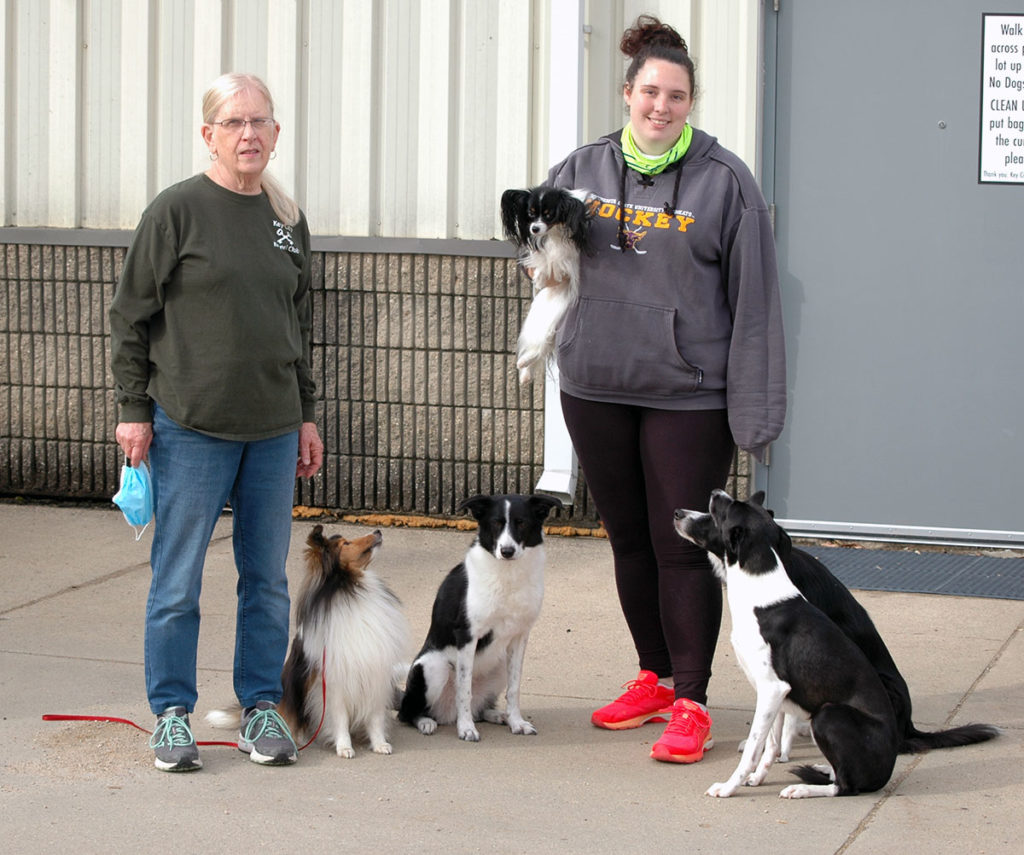
They go over their homework from last week and then try a new command. When one of the dogs begins to act up, pulling on her leash and barking, Brian Carstensen steps in. He’s another board member at KCKC, and he helps out as Davey’s assistant during classes. When one dog calls for one-on-one attention, he handles it so Davey can continue the class. Together, they keep the humans on task so their dogs can focus.
Davey’s other assistant, Kelli, is her 7-year-old Sheltie. Kelli trots obediently around the ring, demonstrating each of Davey’s commands so that the other owners know exactly what their goal is.
After a while, the dogs are ready for a mental break. Davey calls out, “Puppy party!” and the owners drop down to praise, pet and play with their dogs. This balance of work and play is what keeps the dogs and their humans coming back. After all, everyone is here because they love spending time with their dog.
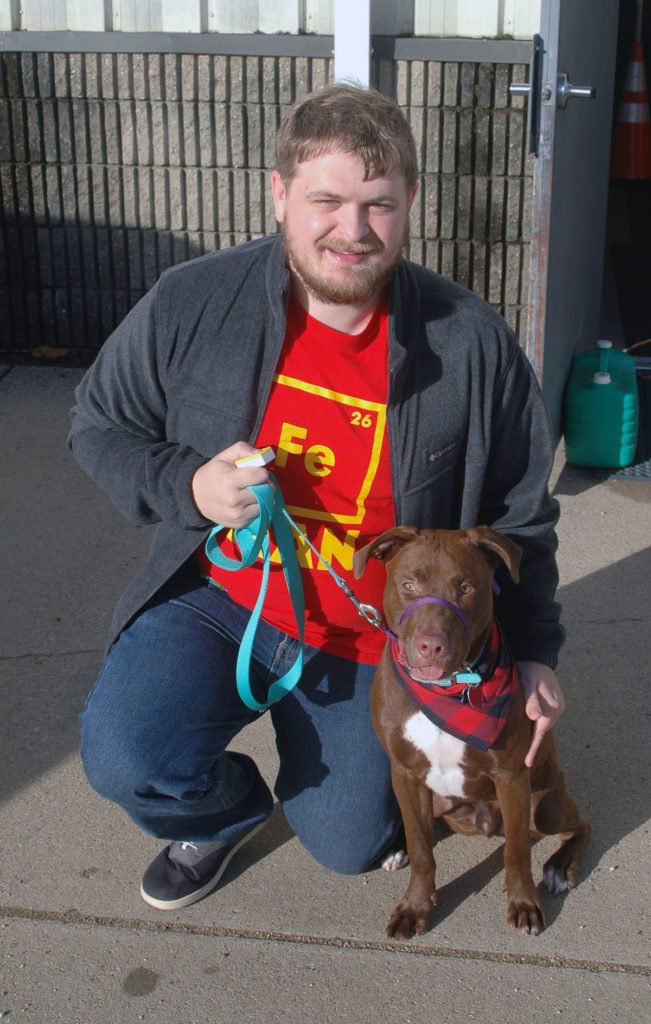
Built to last
Mankato’s Key City Kennel Club was founded in 1967 and is the only American Kennel Club member club in southern Minnesota. It started when Holly Sue Erwin and Pat Johnson, who taught obedience classes, got together a small group of local people interested in starting a kennel club. They put on a “fun match,” an informal dog event, and out of that match came the first organizational meeting. There were 20 people in attendance. Today, there are 58 club members and an ever-growing number of class participants.
“In 1980, I got my first Sheltie, and I heard there was a club in town,” Davey recalled. “That was right when they were beginning to offer classes. Once you get around people going to shows and they’re having so much fun, it encourages you to be a part of that.”
Once you get around people going to shows and they’re having so much fun, it encourages you to be a part of that.Lynn Davey
Today, Davey teaches classes at the Training Center location on 169 southwest of the 68 intersection. The Training Center has been at this location since the fall of 2002. Before that, the club rented the gymnasium floor in the Mankato Armory on Thursday evenings.
“The janitor would have to roll out these huge mats to cover the whole floor for us,” Davey said.
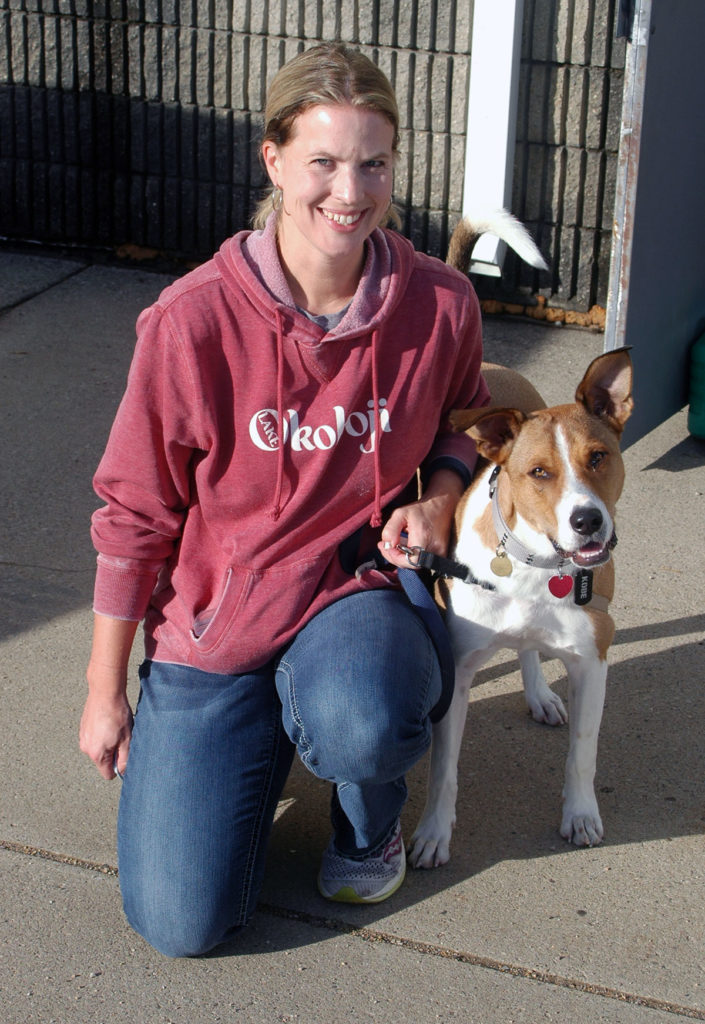
Since the club moved to its own location, they have been able to offer more than just one class a week, and their classes have increased and diversified. The concrete floor has been covered with mats to keep dogs safe, and the dogs and their trainers have plenty of indoor space to move around. The non-profit club offers classes in Obedience, Rally, Agility and Conformation, and they’ve even begun Scent Work.
KCKC had to temporarily pause its classes due to Covid-19. The club didn’t host shows and held no classes for most of spring and summer. Since it’s a board-driven club, the board had to make a decision together on when and how to reopen.
“No one person makes a decision that will affect all of us,” Davey said.
KCKC reopened with some new rules. Masks are required, and classes are limited to six dogs per ring. Social distancing is enforced, and scheduling ensures there isn’t overlap between class groups coming in and out. Despite all these obstacles, the club and the classes remain positive.
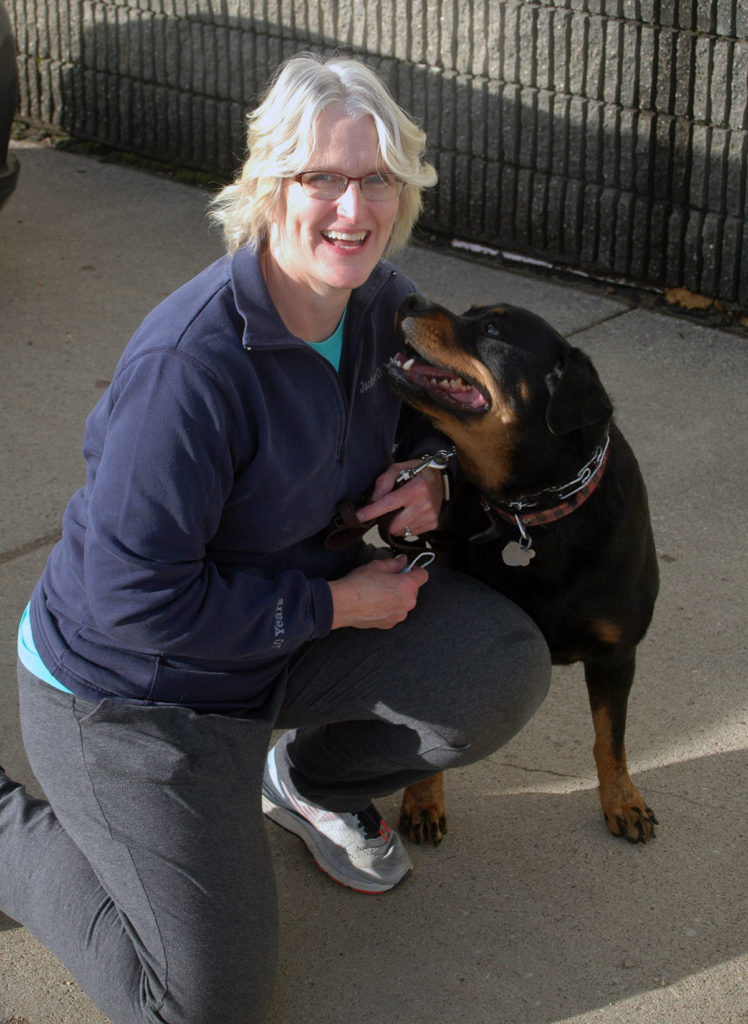
Something for every dog
“Our motto is, ‘We teach you to teach your dog,’” Davey said. “It’s about building and having the confidence that you can help.”
KCKC draws in dog owners from a wide area, with some driving 50 miles just to participate. One dog owner, Holly Magolithin, brings Pepper, her half Sheltie, half Australian Shepard, all the way from Morristown for obedience training.
Our motto is, ‘We teach you to teach your dog.’ It’s about building and having the confidence that you can help.Lynn Davey
“Lynn is such a good teacher,” Maglothin said. “It’s more homework for me. I’m getting the education, and Pepper is benefiting.”
Maglothin brought in her 14-month old dog for Basic Obedience. After just three weeks in class, she can already notice her dog is more attentive. Now Maglothin is planning for some agility training for Pepper in the future.
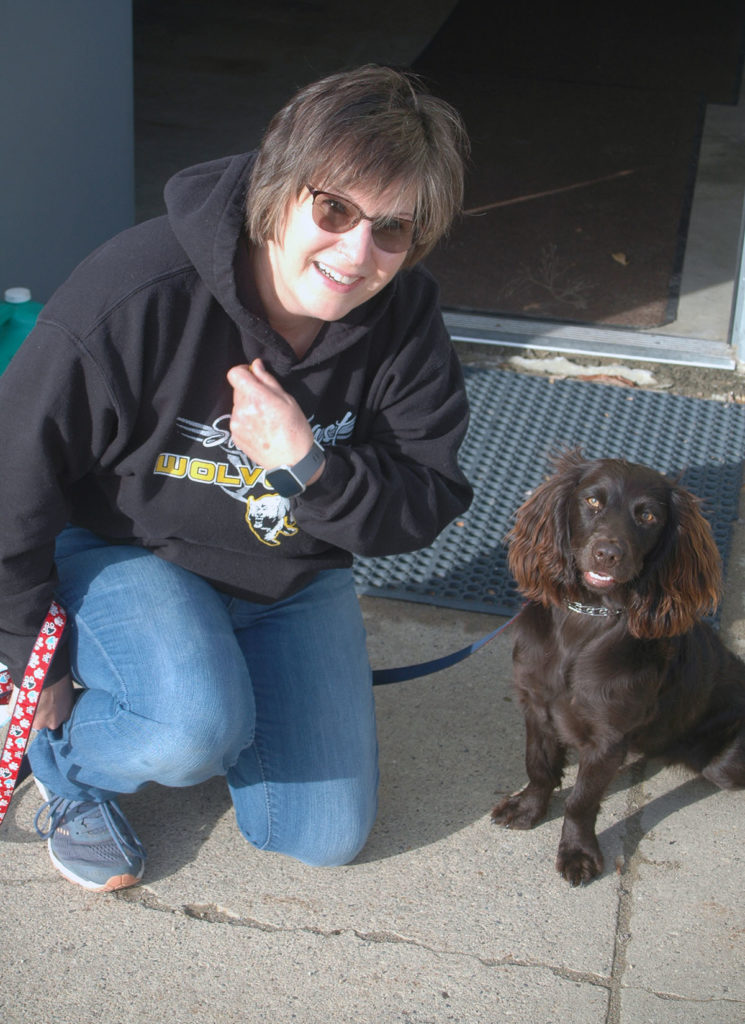
“Mostly, people want better manners,” said Davey. “The majority of people who take classes here got a dog and wanted to try something with them. It’s rare that anyone comes in with a goal to compete.”
But that’s often how it goes. After completing basic obedience, owners and dogs can build their skills in intermediate obedience classes and begin to specialize and pursue other areas. Owners who want to start competing for titles can train their dogs in classes like Agility.
Membership in the club is not required to take a class. All are welcome: purebreds, mixes and mutts. The only show that would require a purebred dog is Conformation, since that particular event measures how closely a dog conforms to a breed’s standard. According to the American Kennel Club, mixed, spayed and neutered purebreds are ineligible to compete in this one area. All other AKC sanctioned events are open to all dogs and mixes that have been spayed and neutered.
Lynn is such a good teacher. It’s more homework for me. I’m getting the education, and Pepper is benefiting.Holly Maglothin
“Dog events have also changed a lot over the years,” said Davey. “When I started classes, we had a choice of obedience or conformation. If your dog was appropriate for conformation, you either trained it for pet manners or for obedience competition. As the years have passed, so many more titling activities have evolved, as well as places to trial/title dogs that were not purebred. Agility, Rally and Scent Work have been added to trials, as well as to our scheduling of classes.”
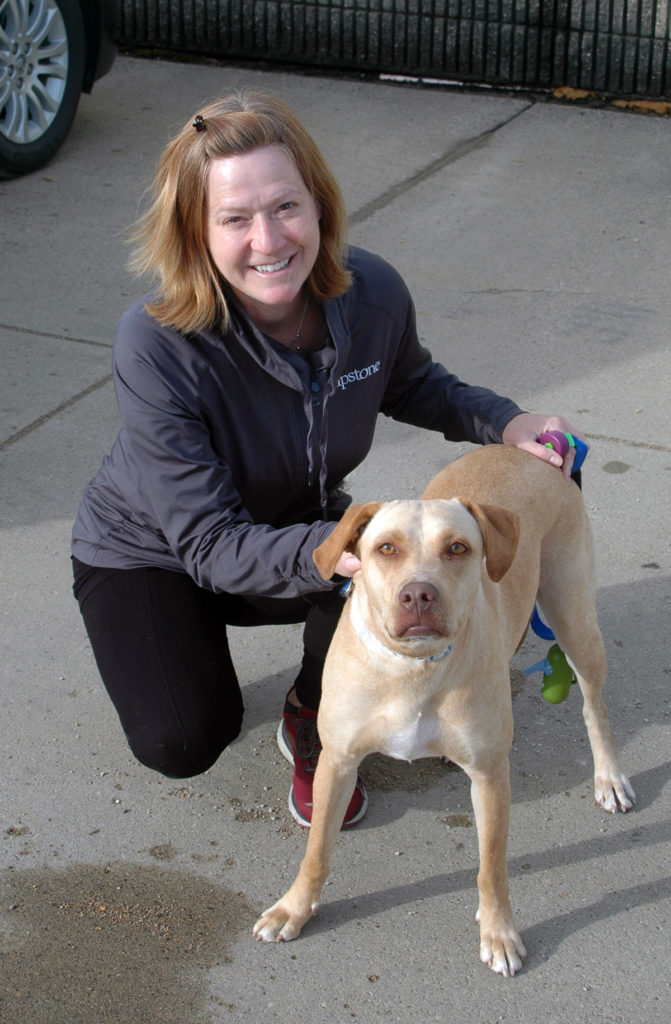
Join the club
KCKC hosts shows at the St. Peter Fairgrounds. They have Agility trials, the All-Breed Show, and Obedience and Rally. It’s never just about winning a title. It’s the community that draws dog owners in.
Members are by and large people who built friendships and realized this is the group they want to hang out with. They’re people who came for classes, had fun and realized their dog was having fun.Lynn Davey
The current 58 members come from all over southern Minnesota, from Waterville to Redwood Falls, St. Peter to Fairmont. Members pay annual dues of $15, the same price it was in the 1970s. Davey said most people who end up becoming members started by seeking out obedience classes. The training follows AKC standards, providing building blocks for owners interested in taking the training further. These beginner classes are where many dog owners get hooked.
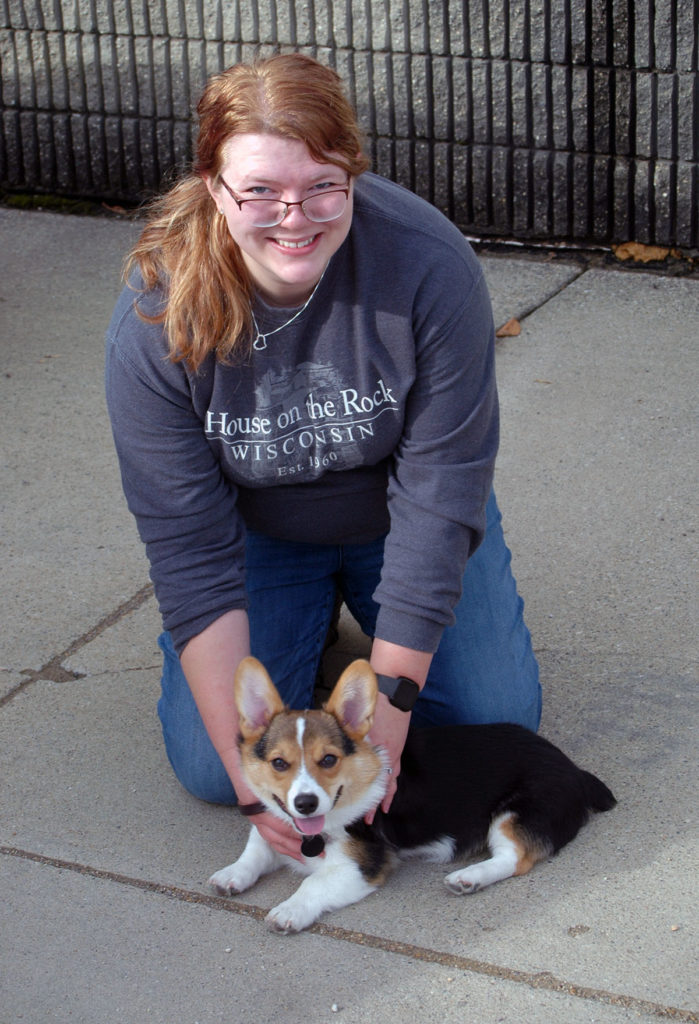
“I honestly can’t remember someone dropping their membership unless they moved a great distance, or their lives are remembered fondly by us all,” said Davey.
Applicants must attend at least two club-sponsored events, such as shows, trials or classes, and they must be vouched for by two current club members in their application.
“We encourage people to get to know us to see if the club is a good fit for their lives before applying for membership in the club,” Davey said. “We hope that all members who are able will help with club events. That might be baking a pie/cake, making a hot dish [or] serving food at an event, as well as packing the equipment trailer, setting up at the show site, transporting out-of-town judges, stewarding at or cleaning up after shows and trials.”
The biggest advantage to becoming a member for someone interested in dog activities [and] events is the wonderful friendships you can foster with people that love dogs!Lynn Davey
The club also hosts social events, like Christmas parties and summer picnics. Working and playing together builds friendships that last a lifetime, and that bond is what has kept the Key City Kennel Club thriving for more than half a century.
“Members are by and large people who built friendships and realized this is the group they want to hang out with,” Davey said. “They’re people who came for classes, had fun and realized their dog was having fun. The biggest advantage to becoming a member for someone interested in dog activities [and] events is the wonderful friendships you can foster with people that love dogs!”
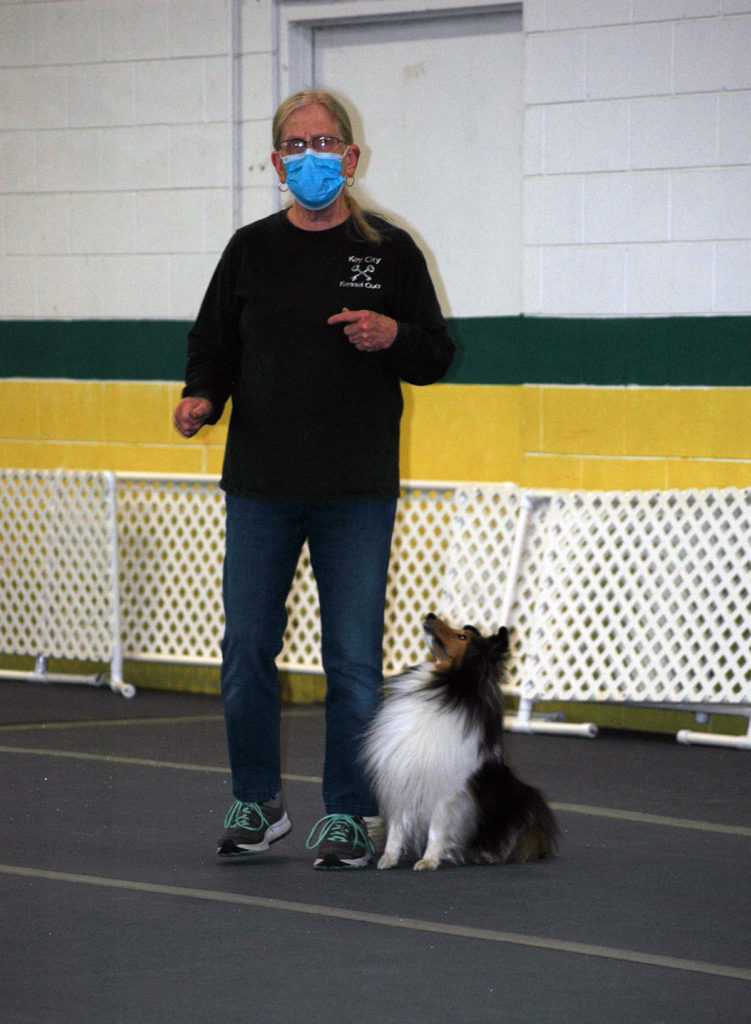
Man’s best friend
After a little puppy party, the dogs and their handlers are back to work. It’s just the third week of classes, and Davey is already training the owners for a good sit and stay.
“Sit. Stay!” Davey commands Kelli.
Kelli obeys. Even with a little tug on the leash, she won’t budge. The other owners pull out their treats and get to work. It can be frustrating work; some dogs get distracted, or seem like they had it but immediately forget. But with patience and positive reinforcement, every dog completes the command. The overly enthusiastic dogs from the beginning of class have been replaced with a calm, focused group.
Davey gives out the week’s homework, and class is dismissed. Owners leave more confident and better trained, and every dog heads home with their tail wagging.



